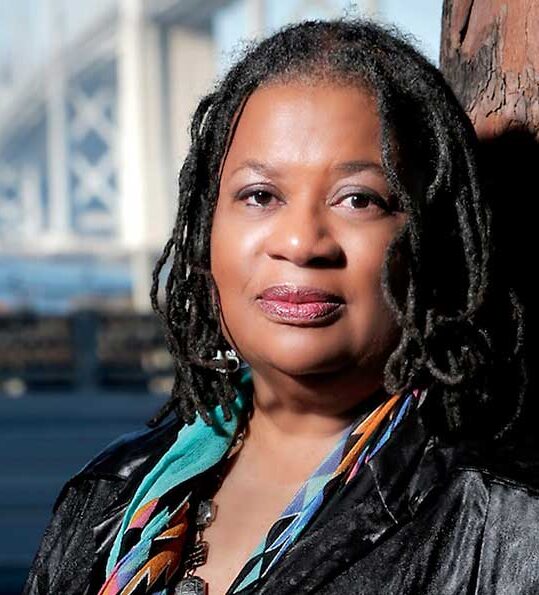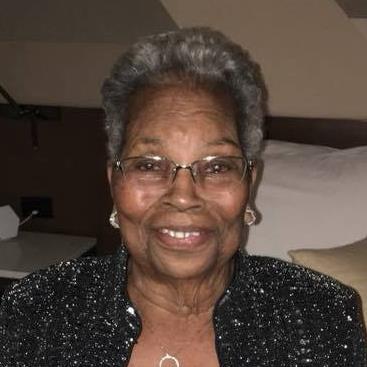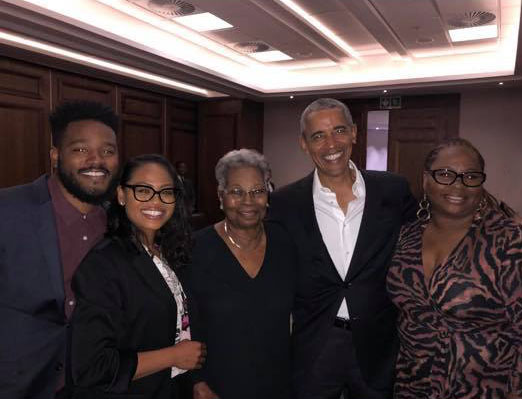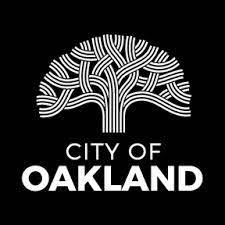
By Judy Juanita

Port Arthur, Texas, was a company town where people worked for the oil companies, got up early, and went to bed early. It’s a seaport town, surrounded by water, an abundance of seafood. Charlene Thomas, an Oakland resident from there, said, every meal had “some kind of water something on your plate. Fish, shrimp, sausage and shrimp, all kind of goulashes, all done for 12 o’clock in the day which was the biggest meal.” There they ate breakfast, dinner, and supper which was the lightest meal in early evening.
Charlene, now 93 years old, came here in ’42 at 13 years old, on her first trip out of Texas to the train station at 16th and Wood in West Oakland. Daughter of a longshoreman, widow of a longshoreman, mother of a longshoreman, mother of five, grandmother of eight, and great grandmother to many beloveds, she moved to Oakland—with her mother, stepdad, and sisters—in chain migration, in 1942. They were one family of many. She said there were:
A lot of people trying to better themselves
Especially Black people
Jumping in cars coming to California
A lot of them made it here
Made their money and went on back home.
She stayed. Of her adopted state, she says:
“Half the people in California ain’t got sense to pour piss out of a boot.”
Home was Port Arthur, a town near Beaumont, a seaport, and center of a large oil refinery network, including Gulf Oil. Charlene Thomas recalls the neighborliness, that everybody was the same, neighborly, went to the beach together, celebrated Juneteenth, and socialized at church.
In Oakland, though, you had to get up and go to the store.
Big stores like Swan’s and Housewives Market. It wasn’t all shopping. That’s where everybody knew everybody, and they’d sit and wait to see who had just come to town. Same with the train station; somebody new arriving just as she had from Port Arthur, on the Southern Pacific: Southerners, mostly old men, Charlene said, used to go to the rail station and just wait to see who came in on the train. Afterwards, the men would come by the house talking about who got off the train.
Her own first impression getting off the train
Terrible. When they got here, she saw all these big old Victorian houses. No paint on them—they looked raggedy, and the train station on 16th & Wood didn’t look nice. She was in jr. high, and thought, This is California? This ragged little town? Oh well, you gotta go where your parents go.
Chain migration
Her grandmother had come to Oakland to visit her sick daughter and decided to stay. At one point, it seemed to young Charlene that everybody wanted to move to California. Many were merchant seamen. After her grandmother came, she started pulling her children one by one. Charlene’s mother was the last to come. Her stepdad worked on the port there and found he could transfer here. When he got here, he worked in the shipyards for about six months and then went to the port. He got his papers together in Port Arthur, where he belonged to the ILA, International Longshoremen’s Association, and joined ILWU.
Port Arthur was a mixed town
Her family always lived in the mixed area until they moved to the southern side where all the Black folks lived. In Port Arthur, she recalls, they didn’t have streetcars, just buses. But if you wanted to get to town or go anywhere, you didn’t have to ride buses. The buses were segregated. Most of the Black folks rode cabs. Or they walked. But they had more cab drivers in Port Arthur. The cabs had Black drivers. Black folks were entrepreneurs; pharmacists had their own grocery stores, drugstores:
Across the track, that’s where Black folks had their own everything, funeral homes, hospitals. They had a clinic, what I call a hospital. If you got sick, you got a bed set up. But if you were deathly sick then you went to the bigger hospital.
Charlene’s grandmother, Mama Lucy, used to sell food, fried fish and chicken. And not from a fish market. People would bring her fish from the gulf. She’d pay them, cook it up, and then sell to the people who worked in the oil derricks. A truck would bring the oil workers for dinner at noon. But Mama Lucy was up before dawn. She’d set up that food table in the yard: vegetables, meat, cornbread, the fish, make a big bucket of tea; they’d come eat and the truck’d take them back to the field. That’s how her grandma made her living. Charlene said folks always could make some money.
My grandmother worked hard. I saw how she had to get up before day, lighting that stove, going out there getting that food, coming home cooking, ready by the time the people got there. I didn’t want to cook for nobody but myself. Been around too many people cooking for somebody else. I just wanted to cook for my family.
Her grandmother lived a ways from them. Everybody had to get in a car to go wherever they went. Charlene said, every little town in Texas the same. One movie house—white folks downstairs and colored upstairs, signs for Colored faucets. As a youngster she thought:
What’s the difference in water? You got colored people all up in your house cooking and feeding you—y’all is some dumb ass white people.
Big Differences in Food
In Port Arthur, they called gumbo cheap eating. And basically, the family cooks made their own gumbo; they could make a pot of gumbo in a minute cuz they were right at sea port land, not that high.
Now California was what I call mild-eating people, not highly seasoned food, no chili peppers and all that.
They could go out fishing—catch their own meal in an hour—come back home and be ready to cook it. That’s what they used to do. Charlene recalls two little old ladies who used to go fishing early in the morning, crabbing and fishing with one of their granddaughters and herself. She was seven years old. They’d say, I’m going crabbing in the morning. I’m a call ya. You did crabbing early, 6 am. By 7, you were heading home. It didn’t take long.
We would get up and go with them. Cause if you fishing you gonna hook some crabs…all you need is a net to catch them. Where we lived you just walk to go catch crab… crabbing was easy. Just take a string, go behind the grocery store, get a piece of meat throwed away, wrap it up, get you some twine, tie that meat on that twine, throw it in the water on the end of the pole. …when you pull the net up, you pull it up full of crabs. You couldn’t go in the big channels where the big ships would run the crabs away; you had to cross over the big pathway, past the big ships, to get to the little ships.
But it was dangerous. They’d sit down on the steps on the seawall. Even though the old folks told them not to go further, because if the ship came in, the water would rise, kids sat down and got wet. Sometimes they sat too close; they’d fall in; she never did. But there were always kids drowning; kids who didn’t obey, very rarely old folk who knew better. She had her own bucket to bring home crabs live and crawling…dozens of little blue crabs… a bucket of little soft shelled blue crabs. She said:
When I came here and saw crabs here, I had never seen a crab that big. They didn’t have blue crabs when we came here, only the big red ones.
Big Differences in Weather
There were huge differences in weather. Lightning and thunder in summer and winter—in the South when it goes to lightening and thundering, you close up everything. It was very scary. They’d close the mirrors up; the dressers were made with the mirrors closed because the mirrors could draw the lightning. So they’d close the windows, pull the shades, go somewhere in the house and sit down and be quiet. Lightning would still come through; the sun would be shining. Then all of a sudden everything’d get dark. Charlene says:
You never get used to that. Here I think your body adjusts. I used to always be cold here. But your body adjusts. I didn’t like humid; when it’s hot and no sunshine, it’s sticky heat, I hated it. I call it wet summer.
As strong as the weather, and the differences in food, were her views on Black people and white people.
Black folks are something, we can have our own country and own town cuz they got more brains than the white man. I learned that long time ago—white folk is dumb. Why they out here just arguing and picking at people? They mad cuz you got a better looking house. I don’t care what you did to Black people, their house look better than them trashy white people. I’m just talking about the South, where we lived. They always lived on the main street but you lived in the alley. But we lived better than them. They might be living on the front street, but they was trifling and not fixing they self up. But the average one that’s like that; they all hang together in their own little nasty neighborhood. You can always tell where they live because they nasty, they junky, they don’t clean up, but where Black folks lived was always nice. I don’t care if it was a two roomer. Yard cleaned up, even if they didn’t have grass, swept. Black folks are proud people. Their house ain’t gonna be junkied up, not in that little town where I came from.
Biggest difference was in people’s friendliness
The biggest difference was in people’s friendliness in California. She didn’t find people in California very friendly. She said:
You could always tell people that weren’t from California; they were open and friendly. California people were kind of selfish, clannish, stick to themselves. They don’t mingle with nobody else. They think they’re better than anybody else. And half of em ain’t got sense enough to pour piss out of a boot. You talk about people out of the South; you need to take a trip to the South and learn something. You been here all your life and you don’t own a home. You go to the South and everybody in the South owns a home.
Prejudice
The worst thing about California was that the more Black people came here, the more prejudice there was. California got prejudiced. When her family first got here, it wasn’t that bad. Then it got to the place, where, like if you went in the store, they’d take their time to wait on you.
I just felt like they were thinking it’s too many black people. When the white folk moved out [in the 60s] and Black folks went to buying these houses, it was a lot of white folks still here. But after a while they got to moving like flies, I didn’t care, I didn’t care nothing about them living near me no way.
But would she move back? That’s the question.
Nobody went back down there. Wasn’t nothing to go back down there for, wasn’t nothing in those little towns.
The greatest thing about California? The Parks
By far, the greatest thing about California and what brings a pure smile to her face—the weather and the parks. When her husband got off work, they’d pack up food and go:
I love these parks; they were so big. We lived in the parks in Oakland, up and down the coasts, in the valley. I raised my kids in parks. We ate more meals in the park than anything; my kids loved to feed the ducks at Lake Merritt. Every park you could go to, I’ve been in them. I’d light a fire and grill, then we’d get home and I’d give the kids a bath. We used to get up on Saturdays, pack a lunch and go to the parks. Every time we passed a park, we’d say we can come back to this park. I’d come out with a book while the children played. People say everything costs so much money, but parks are free.
In the long run, do you have a better life because of the move?
Yes, I’m sure. Not really materially so much. Just being peaceful and satisfied.



By Judy Juanita
Judy Juanita’s poetry collection, MANHATTAN MY ASS, YOU’RE IN OAKLAND, won the 2021 American Book Award. Her short story collection, THE HIGH PRICE OF FREEWAYS, won the Tartt Fiction Prize 2021 and will be published this July by the University of West Alabama’s Livingston Press. Her debut novel, VIRGIN SOUL, was published by Viking in 2013. She has taught writing at Laney College since 1993.


